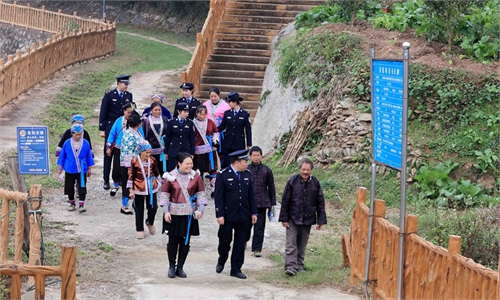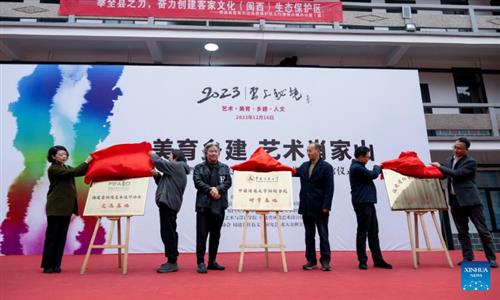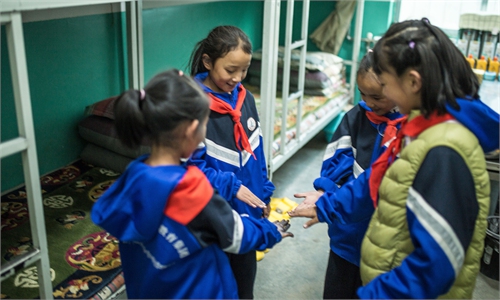ARTS / CULTURE & LEISURE
STEM institute in Shanghai benefits education modernization and talent cultivation

STEM Photo: VCG
China's first Category 1 Institute of UNESCO, the UNESCO International Institute for STEM Education (IISTEM), will be located in Shanghai's Xuhui district. This will be beneficial for advancing the modernization of education in the country and aligns with the idea of building a global community with a shared future, officials from the Ministry of Education said on Wednesday.Speaking at a press conference, Qin Changwei, secretary-general of the Chinese National Commission for UNESCO, said that the decision to establish IISTEM was unanimously adopted during the 42nd Session of the UNESCO General Conference in Paris, France in November. This marks the first time a UNESCO Category 1 center will be established in China and the 10th globally, making it the first such center outside of Europe and the Americas. Its primary function is to promote "inclusive, fair, appropriate, and high-quality" education for everyone in the fields of science, technology, engineering and mathematics (STEM), from early childhood to adulthood.
Calling for strengthened STEM education cooperation to enhance innovation and development capabilities, he emphasized that the initiative responds to the urgent needs of developing countries, especially in Africa.
"The proposal from China aligns with the vision of a global community with a shared future. It aims to support UNESCO's leadership role and facilitate global STEM education exchanges and cooperation, providing robust support for the development of STEM education in developing countries," he said.
Stefania Giannini, assistant director-general for education at UNESCO, said through a video link that the institute will be an important ally and a contributor to UNESCO's leadership and play the role of guardian and coordinator for a new global education goal.
Shahbaz Khan, a representative of the UNESCO Mutisectoral Regional Office for East Asia, said the institute will function as a hub for international exchange, offering a repository of cutting-edge resources and best practices in STEM education.
Ning Bo, a professor with Shanghai Normal University and project manager at the UNESCO teacher education center, told the Global Times on Wednesday that the establishment of a STEM education center in Shanghai can assist Chinese universities in nurturing talent in STEM-related fields, particularly reducing the challenges faced by Chinese students pursuing STEM majors in the US due to visa restrictions.
In 2021, more than 1,000 Chinese students decided to cast away their illusions and file a suit after they found that despite the US Embassy in China reopened visa applications, strict restrictions on those with high-tech backgrounds remain in place.
"The institute will assist China in sharing its education experience and growing to become a leader in global STEM education. It will assist universities in solving technological problems and cultivating talents in technological innovation," said Ning.
Zhou Yaming, director of the Shanghai Municipal Education Commission, noted that main structural work of the institute has been completed in Shanghai's Xuhui district. The final building will offer diverse functions to effectively meet the needs of students and teachers. The site will have advanced intelligent security systems, mature energy-saving measures, and a distinctive modern technological atmosphere. Under the guidance of UNESCO and the local government, Shanghai is committed to solidly advancing the construction and supporting facilities of the selected site.
This area is a hub for scientific and educational resources, showcasing Shanghai's prominence in education. Over the years, it has consistently built a comprehensive "STEM plus" curriculum system in basic education, establishing a significant presence in science education, said Zhou.




